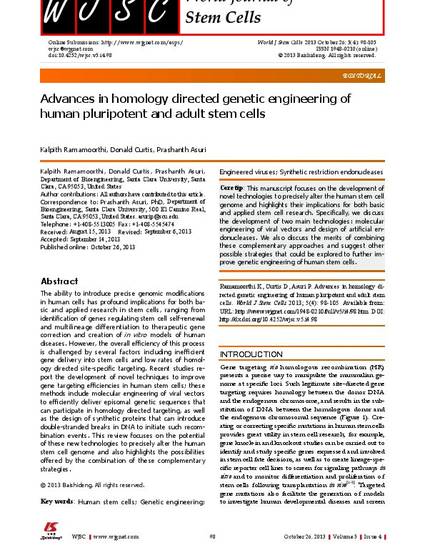
The ability to introduce precise genomic modifications in human cells has profound implications for both basic and applied research in stem cells, ranging from identification of genes regulating stem cell self-renewal and multilineage differentiation to therapeutic gene correction and creation of in vitro models of human diseases. However, the overall efficiency of this process is challenged by several factors including inefficient gene delivery into stem cells and low rates of homology directed site-specific targeting. Recent studies report the development of novel techniques to improve gene targeting efficiencies in human stem cells; these methods include molecular engineering of viral vectors o efficiently deliver episomal genetic sequences that can participate in homology directed targeting, as well as the design of synthetic proteins that can introduce double-stranded breaks in DNA to initiate such recombination events. This review focuses on the potential of these new technologies to precisely alter the human stem cell genome and also highlights the possibilities offered by the combination of these complementary strategies.
DOI: http://dx.doi.org/10.4252/wjsc.v5.i4.98
